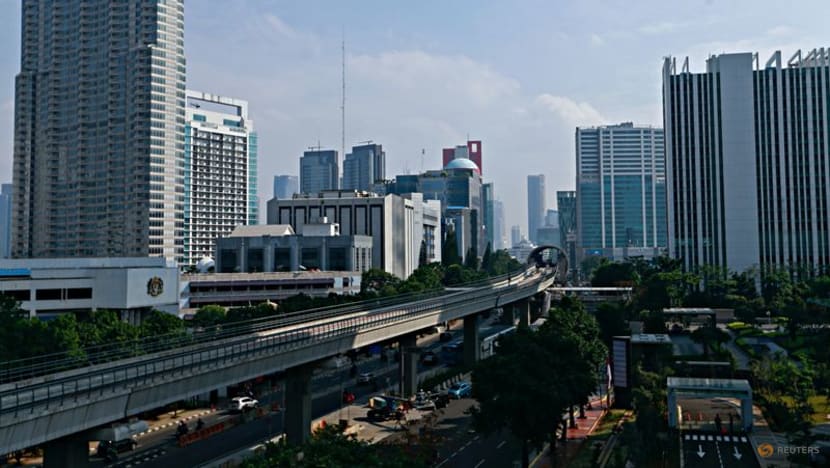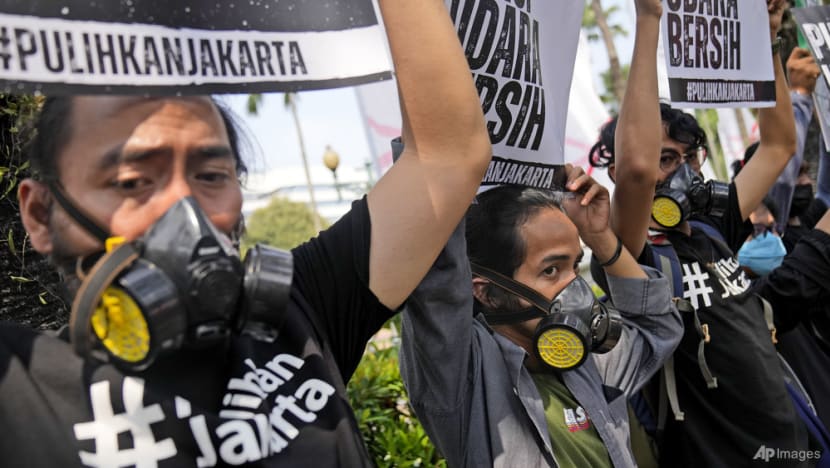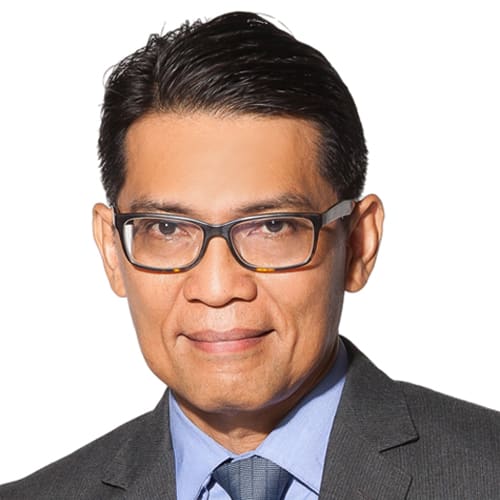Jakarta marks last birthday as Indonesian capital, with plans to remain country’s economic hub
A roadmap is being designed to rejuvenate the sinking and congested city.

FILE PHOTO: A general view of the city skyline of Jakarta, the capital city of Indonesia, August 5, 2021. (File photo: REUTERS/Ajeng Dinar Ulfiana)

This audio is generated by an AI tool.
JAKARTA: The Jakarta administration is preparing a roadmap to preserve the metropolis’ role as Indonesia’s economic epicentre, even after it loses its capital status.
Jakarta, which marked its 497th birthday on Saturday (Jun 22) and its last one as the national capital, contributes nearly 17 per cent to the Indonesian economy.
The local government hopes the congested and sinking city can maintain or even improve its contribution, but the vision may be hampered by various obstacles, said observers.
Jakarta will officially lose its standing as the capital when the president issues a decree officially naming Nusantara, a US$32 billion megaproject in East Kalimantan, as the new seat of the government.
Outgoing Indonesian President Joko Widodo said: “I could later sign it, or later the president-elect (Prabowo Subianto) of the new government could also sign it.”
Mr Widodo announced the decision to relocate the Indonesian capital from Jakarta in 2019.
TRANSFORMING JAKARTA INTO A GLOBAL CITY
On Mar 28, Indonesia's parliament designated special status for Jakarta so it can still compete with other “world-class cities”. It will remain as the country's economic hub, and a global centre for trade, services, finance and business.
Currently, a roadmap detailing the city’s long-term development plans for the next 20 years is being designed. The documents are expected to be completed this year.
“We have that vision for Jakarta to be a global city that is progressive, competitive and sustainable,” said Dr Sri Haryati, economics and finance assistant for the regional secretariat of the Jakarta provincial government.
“(Sustainability) is important because we are talking about issues related to the environment, climate change and so on. So, sustainability is something that Jakarta really cares about,” she added.
“We are concerned about how the human resources in Jakarta are of good quality, productive and prosperous. Jakarta's economy should not only thrive but also be inclusive, globally competitive and sustainable.”

CHALLENGES IN RESOLVING JAKARTA’S PROBLEMS
For years, Jakarta has been plagued with various issues such as floods, inaccessibility to clean water, inadequate housing, poor waste management, traffic congestion, and pollution.
“We have a slogan - Restore Jakarta. One of the ways to restore Jakarta is to develop regulations that support ecological interests,” said WALHI Jakarta environmental policy advocacy officer Syahroni Fadhil.
“For example, conduct inspections on companies that contribute to waste in the rivers. Have such environmental audits been carried out?”
Jakarta will be part of an "agglomeration" council to harmonise development plans with satellite cities such as Bogor, Depok, Tangerang and Cianjur.
Urban planning expert Nirwono Joga told CNA that the council, which is mandated by the Jakarta special region law, may face challenges in trying to resolve the city's many problems.
“The regional heads in Jabodetabekpunjur (Jakarta and its satellite cities) have different political party backgrounds and different interests. Don't forget they have their own development agenda,” he said.
“For example, if we talk about floods and providing clean water for Jakarta, is that the same problem for them? If they are forced to take part in dealing with floods, providing clean water, what is the benefit for them, for their city, (and) for their constituents?”
In November, Jakarta residents will head to the polls to select a governor to lead the city in a post-capital era for the next five years.
“My personal hope is that Jakarta, as the former capital of the country in the future, will first be free from pollution,” said Jakarta resident Wildan Arif Husen.
“Secondly, I hope for improvements in infrastructure, especially in open areas, for more amenities such as parks and sports venues.”
But another resident V Stella believes there will be no end to Jakarta's problems.
“These problems will continue, or maybe with the move to the new capital in the future, the issues might change. If a problem never existed before, it may suddenly appear,” she added.



















